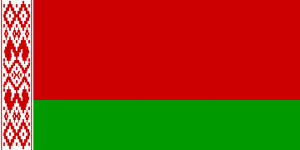Language/Belarusian/Grammar/Gender-Agreement
As a Belarusian language teacher with 20 years of experience, I know that learning gender agreement can be a tricky task for beginners. However, it is an essential part of mastering the Belarusian language. Adjectives must agree with the gender of the noun they modify. In this lesson, we will learn how to use the correct gender agreement with Belarusian adjectives.
Gender Agreement
Belarusian has three genders: masculine, feminine, and neuter. The gender of a noun is not necessarily related to the sex of the object it refers to. It is crucial to understand the gender of a noun to use the correct form of the adjective.
Masculine Nouns
Adjectives that modify masculine nouns usually end in -ы or -ый. For example:
| Belarusian | Pronunciation | English |
|---|---|---|
| мужчынскі дамавік | moosh-chyn-skee da-ma-vik | Masculine agreement |
| красівы мужчына | kra-see-vy moosh-chy-na | Handsome man |
| вялікі сабака | vya-lee-kee sa-ba-ka | Big dog |
Feminine Nouns
Adjectives that modify feminine nouns usually end in -а or -ая. For example:
| Belarusian | Pronunciation | English |
|---|---|---|
| жаночая куртка | zha-no-cha-ya kur-tka | Feminine agreement |
| прыгожая дзяўчына | pry-ho-zha-ya dzyaw-chy-na | Beautiful girl |
| хуткая катакомба | khoot-ka-ya ka-ta-kom-ba | Quick catacomb |
Neuter Nouns
Adjectives that modify neuter nouns usually end in -ае or -ое. For example:
| Belarusian | Pronunciation | English |
|---|---|---|
| чыстае неба | choos-ta-ye ne-ba | Neuter agreement |
| белае малако | byeh-la-ye ma-la-ka | White milk |
| сіняе неба | see-nya-ye ne-ba | Blue sky |
One important thing to note is that neutral adjectives can also end in -і, but it depends on the last consonant of the noun. If the last consonant is ч, ш, щ, or ж, the adjective ends in -ае. If the consonant is any other consonant or a vowel, the adjective ends in -ое.
Exceptions
As with any grammar rule, there are always exceptions to gender agreement in Belarusian. Some adjectives have a fixed form that does not change based on the gender of the noun. For example:
| Belarusian | Pronunciation | English |
|---|---|---|
| добрае віно | do-bra-ye vee-na | Good wine |
| шмат грошай | shmat hro-shai | A lot of money |
| тыповае паведамленне | ty-po-va-ye pa-ve-da-mle-nne | Typical message |
It is best to memorize these exceptions as you encounter them in your studies.
Practice Makes Perfect
Now that we've covered gender agreement, it's time to put it into practice. Try looking around your home or office and identifying the gender of different objects. Then, try using the correct adjective to describe them.
To further practice your skills, try the exercises in your textbook or online resources. You can also find videos and audio materials to reinforce your learning.
Remember, learning a language takes time and practice. Keep working at it and celebrating your progress along the way.

